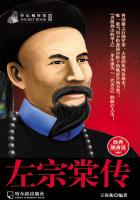Among her fellow pensionnaires she met with discomforting illuminations, which were fine discipline also, though if she herself had been a less intellectual creature they might have been embittering.Without doubt Betty, even at twelve years, was intellectual.Hers was the practical working intellect which begins duty at birth and does not lay down its tools because the sun sets.The little and big girls who wrote their exercises at her side did not deliberately enlighten her, but she learned from them in vague ways that it was not New York which was the centre of the earth, but Paris, or Berlin, Madrid, London, or Rome.Paris and London were perhaps more calmly positive of themselves than other capitals, and were a little inclined to smile at the lack of seriousness in other claims.
But one strange fact was more predominant than any other, and this was that New York was not counted as a civilised centre at all; it had no particular existence.Nobody expressed this rudely; in fact, it did not acquire the form of actual statement at any time.It was merely revealed by amiable and ingenuous unconsciousness of the circumstance that such a part of the world expected to be regarded or referred to at all.
Betty began early to realise that as her companions did not talk of Timbuctoo or Zanzibar, so they did not talk of New York.Stockholm or Amsterdam seemed, despite their smallness, to be considered.No one denied the presence of Zanzibar on the map, but as it conveyed nothing more than the impression of being a mere geographical fact, there was no reason why one should dwell on it in conversation.Remembering all she had left behind, the crowded streets, the brilliant shop windows, the buzz of individual people, there were moments when Betty ground her strong little teeth.She wanted to express all these things, to call out, to explain, and command recognition for them.But her cleverness showed to her that argument or protestation would be useless.She could not make such hearers understand.There were girls whose interest in America was founded on their impression that magnificent Indian chieftains in blankets and feathers stalked about the streets of the towns, and that Betty's own thick black hair had been handed down to her by some beautiful Minnehaha or Pocahontas.When first she was approached by timid, tentative questionings revealing this point of view, Betty felt hot and answered with unamiable curtness.No, there were no red Indians in New York.There had been no red Indians in her family.She had neither grandmothers nor aunts who were squaws, if they meant that.
She felt so scornfully, so disgustedly indignant at their benighted ignorance, that she knew she behaved very well in saying so little in reply.She could have said so much, but whatsoever she had said would have conveyed nothing to them, so she thought it all out alone.She went over the whole ground and little realised how much she was teaching herself as she turned and tossed in her narrow, spotlessly white bed at night, arguing, comparing, drawing deductions from what she knew and did not know of the two continents.Her childish anger, combining itself with the practical, alert brain of Reuben Vanderpoel the first, developed in her a logical reasoning power which led her to arrive at many an excellent and curiously mature conclusion.The result was finely educational.All the more so that in her fevered desire for justification of the things she loved, she began to read books such as little girls do not usually take interest in.She found some difficulty in obtaining them at first, but a letter or two written to her father obtained for her permission to read what she chose.The third Reuben Vanderpoel was deeply fond of his younger daughter, and felt in secret a profound admiration for her, which was saved from becoming too obvious by the ever present American sense of humour.
"Betty seems to be going in for politics," he said after reading the letter containing her request and her first list of books."She's about as mad as she can be at the ignorance of the French girls about America and Americans.She wants to fill up on solid facts, so that she can come out strong in argument.
She's got an understanding of the power of solid facts that would be a fortune to her if she were a man."It was no doubt her understanding of the power of facts which led her to learn everything well and to develop in many directions.She began to dip into political and historical volumes because she was furious, and wished to be able to refute idiocy, but she found herself continuing to read because she was interested in a way she had not expected.She began to see things.Once she made a remark which was prophetic.
She made it in answer to a guileless observation concerning the gold mines with which Boston was supposed to be enriched.
"You don't know anything about America, you others," she said."But you WILL know!""Do you think it will become the fashion to travel in America?" asked a German girl.
"Perhaps," said Betty."But--it isn't so much that you will go to America.I believe it will come to you.It's like that--America.It doesn't stand still.It goes and gets what it wants."She laughed as she ended, and so did the other girls.But in ten years' time, when they were young women, some of them married, some of them court beauties, one of them recalled this speech to another, whom she encountered in an important house in St.Petersburg, the wife of the celebrated diplomat who was its owner being an American woman.















